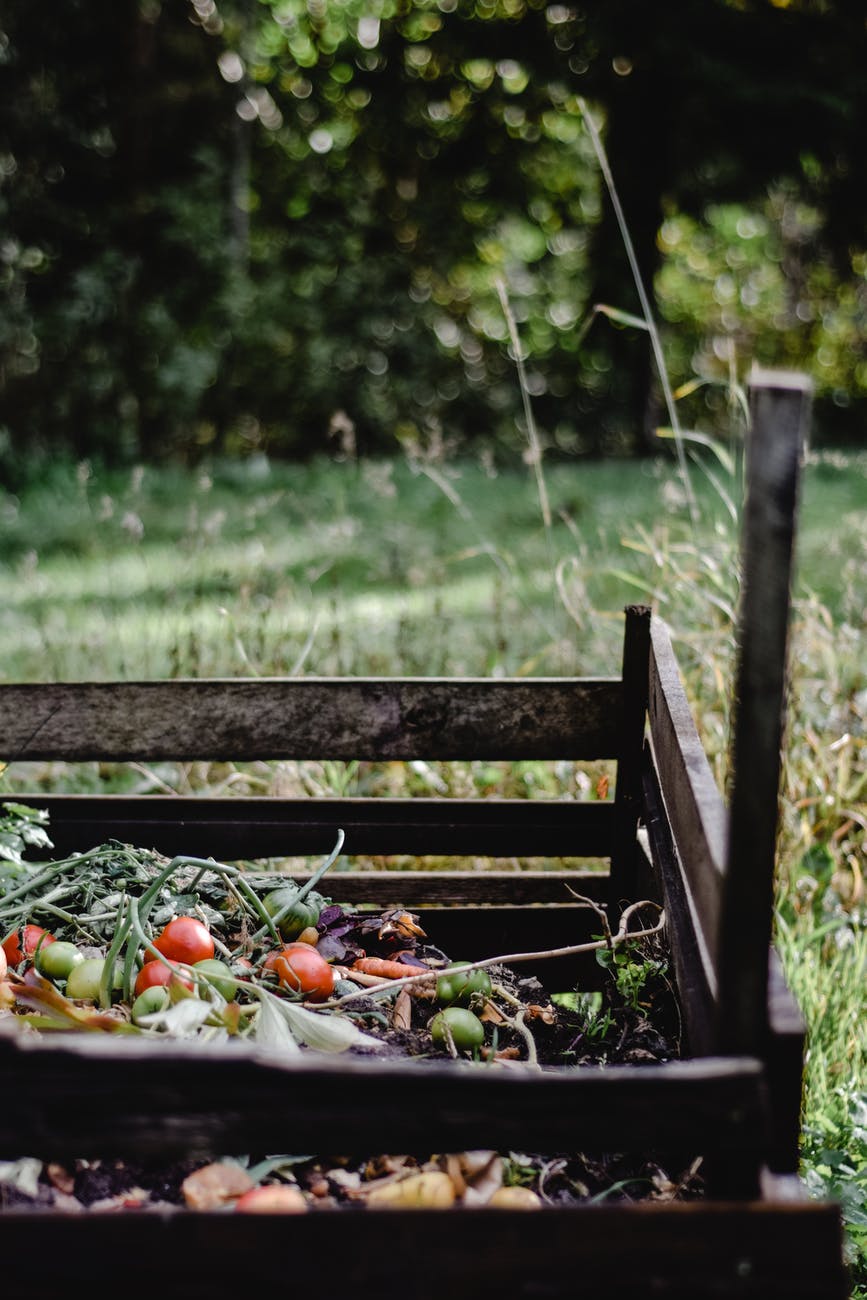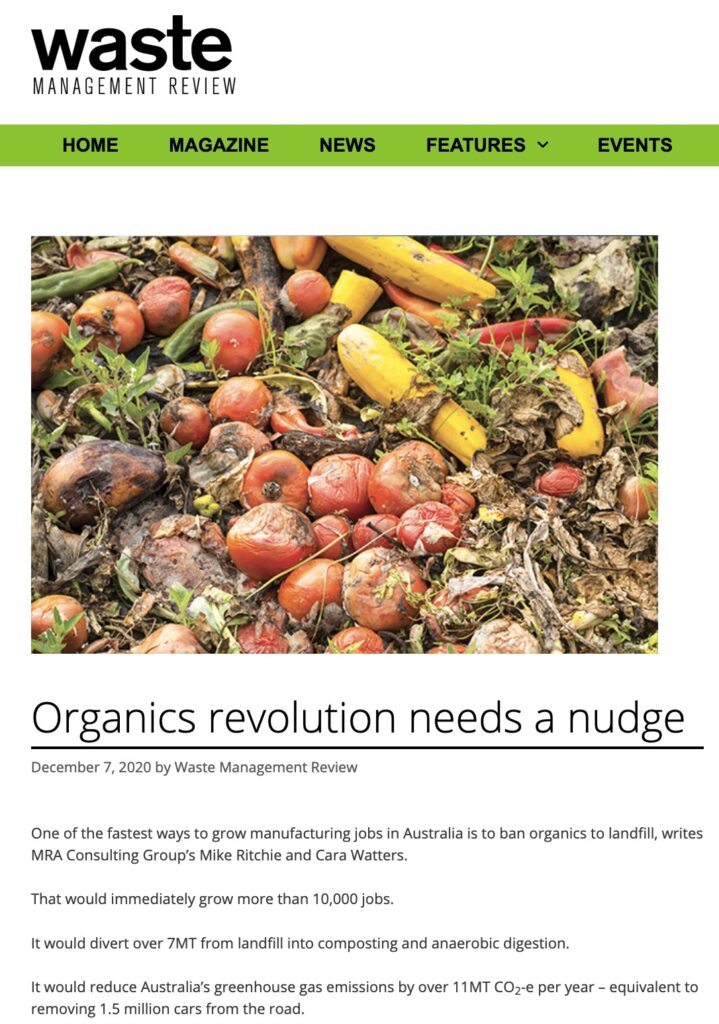Organics revolution needs a nudge
By: Cara Watters and Mike Ritchie, MRA Consulting Group

One of the fastest ways to grow manufacturing jobs in Australia is to ban organics to landfill.
That would immediately grow more than 10,000 jobs.
It would divert over 7MT from landfill into composting and anaerobic digestion[1].
It would reduce Australia’s greenhouse gas emissions by over 11MT CO2-e per year[2] – equivalent to removing 1.5 million cars from the roads[3].
It would generate over 4MT of compost for use in agriculture and improve Australian soils[4].
It would sequester an estimated 48,000t of carbon in soil per year[5].
Not bad for one simple action.
So why hasn’t it happened yet?
Well we are starting to see the first green shoots of structural reform in relation to household organics. Here is a quick summary:
- Victoria is leading with a state-wide requirement for mandatory FOGO to all households that don’t already have access to a service. All Councils must begin the process by 2026/27, with all Victorians to have access to a FOGO bin or service by 2030[6].
- WA has required that all local governments in the Perth and Peel region have a FOGO bin system[7]. This does not apply to the rest of the State.
- SA – All metro Councils now provide FOGO services to households and the government has committed to further funding of infrastructure[8]. There is no mandate for the rest of the State.
- NSW Government has supported FOGO transition with grants and subsidies but has not mandated FOGO anywhere.
- ACT plans to implement FOGO to all households from 2023[9].
- QLD, Tas and NT have no policies on FOGO implementation. However, some councils and groups of Councils are introducing FOGO.
No state government has required commercial organics diversion from landfill. It is important to note that over 50% of organics to landfill is commercial organics (food, timber, paper and cardboard, etc).
I hear you asking “Why can’t we just ban organics to landfill?”. The answer: “We can and we should. Other jurisdictions have done just that”.
Tweet
Here is a sample of global action on both household and commercial organics:
- The EU Landfill Directive from 1999 (we’re more than 20 years behind!) mandated the processing and pre-treatment of organics prior to landfill[10] – 17 EU Members have implemented mandatory separation to reduce the amount of organics landfilled.
- Ireland – introduced mandatory commercial organics separation in 2009[11] and expanded this to households in 2015[12].
- Canada – Nova Scotia banned organics to landfill in 1997[13].
- Vancouver – mandatory organics separation for residents and businesses since 2015[14].
- USA – 11 states have mandatory organics separation – some apply to households/commercial only or to both.
- San Francisco – mandatory commercial and residential organics separation since 2009[15].
- Seattle – mandatory organics recycling for both commercial and residential properties[16].
The answer is pretty simple. It doesn’t really matter which mechanism is adopted – bans on landfill or mandated collections, so long as the organics are diverted from landfill and back into the productive economy.
Simple. Do-able. Realistic. Important.
Mike Ritchie, is the Managing Director of and Cara Watters is an Environmental Consultant at MRA Consulting Group.
[1] National Waste Report 2018.
[2] National Waste Report 2018.
[3] EPA Greenhouse Gas Equivalencies Calculator.
[4] Gary A. Breitenbeck & David Schellinger (2004) Calculating the Reduction in Material Mass And Volume during Composting, Compost Science & Utilization, 12:4, 365-371. An average passenger car emits 4.6t CO2-e per year.
[5] Soil Carbon Sequestration in Victoria. Compost Victoria 2010.
[6] Recycling Victoria A new economy. DELWP 2020.
[7] Waste Avoidance and Resource Recovery Strategy 2030. WA Waste Authority.
[8] Valuing Our Food Waste Consultation Draft. Green Industries SA 2020.
[9] Waste Feasibility Study. ACT NoWaste 2018
[10] EU Council Directive 1999/31/EC on the landfill of waste.
[11] S.I No 508 of 2009 Waste Management (Food Waste) Regulations+D2:N26.
[12] Household food waste and bio-waste regulation 2015 (S.I No 430 of 2015).
[13] Solid Waste-Resource Management Regulations (1995).
[14] Solid Waste By-law No. 8417.
[15] Mandatory Recycling and Composting Ordinance (No. 100-09).
[16] Seattle Municipal Code (SMC) sections 21.36.082 and 21.36.083.
This article has been published by the following media outlets:




